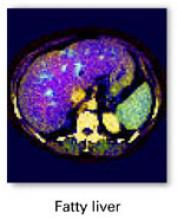User login
<court>Montgomery County (Ohio) Court of Common Pleas</court>
At 31 weeks’ gestation, a 31-year-old gravida reported to her obstetrician’s office with complaints of vomiting. In the absence of the doctor, who was on vacation, a nurse administered hydroxyzine and promethazine and sent the woman home.
Three days later the woman again presented, still reporting vomiting. The since-returned physician ordered immediate transfer to the hospital, where he delivered a healthy male infant via emergency cesarean. He prescribed 25 mg of meperidine for pain.
Shortly after hospital staff loaded a 300-mg meperidine pack into a patient-controlled analgesia machine, the woman went into respiratory arrest. Though resuscitated, she suffered severe brain damage.
The woman was also found to have fatty liver disease, and thus underwent a successful liver transplant. A week later, however, she died as a result of the brain injury.
In suing, the woman’s family claimed the woman’s hypoxic event stemmed from meperidine overdose. They also argued that the nurse was negligent in administering hydroxyzine and promethazine without the doctor’s consent.
The defense noted that the nurse had a standing order from the physician to treat pregnancy-related emesis with hydroxyzine and promethazine. They also argued that the liver disease, not meperidine overdose, was responsible for the respiratory event.
- The jury returned a defense verdict.
The cases in this column are selected by the editors of OBG Management from Medical Malpractice Verdicts, Settlements & Experts, with permission of the editor, Lewis Laska, of Nashville, Tenn. (www.verdictslaska.com) While there are instances when the available information is incomplete, these cases represent the types of clinical situations that typically result in litigation.
<court>Montgomery County (Ohio) Court of Common Pleas</court>
At 31 weeks’ gestation, a 31-year-old gravida reported to her obstetrician’s office with complaints of vomiting. In the absence of the doctor, who was on vacation, a nurse administered hydroxyzine and promethazine and sent the woman home.
Three days later the woman again presented, still reporting vomiting. The since-returned physician ordered immediate transfer to the hospital, where he delivered a healthy male infant via emergency cesarean. He prescribed 25 mg of meperidine for pain.
Shortly after hospital staff loaded a 300-mg meperidine pack into a patient-controlled analgesia machine, the woman went into respiratory arrest. Though resuscitated, she suffered severe brain damage.
The woman was also found to have fatty liver disease, and thus underwent a successful liver transplant. A week later, however, she died as a result of the brain injury.
In suing, the woman’s family claimed the woman’s hypoxic event stemmed from meperidine overdose. They also argued that the nurse was negligent in administering hydroxyzine and promethazine without the doctor’s consent.
The defense noted that the nurse had a standing order from the physician to treat pregnancy-related emesis with hydroxyzine and promethazine. They also argued that the liver disease, not meperidine overdose, was responsible for the respiratory event.
- The jury returned a defense verdict.
The cases in this column are selected by the editors of OBG Management from Medical Malpractice Verdicts, Settlements & Experts, with permission of the editor, Lewis Laska, of Nashville, Tenn. (www.verdictslaska.com) While there are instances when the available information is incomplete, these cases represent the types of clinical situations that typically result in litigation.
<court>Montgomery County (Ohio) Court of Common Pleas</court>
At 31 weeks’ gestation, a 31-year-old gravida reported to her obstetrician’s office with complaints of vomiting. In the absence of the doctor, who was on vacation, a nurse administered hydroxyzine and promethazine and sent the woman home.
Three days later the woman again presented, still reporting vomiting. The since-returned physician ordered immediate transfer to the hospital, where he delivered a healthy male infant via emergency cesarean. He prescribed 25 mg of meperidine for pain.
Shortly after hospital staff loaded a 300-mg meperidine pack into a patient-controlled analgesia machine, the woman went into respiratory arrest. Though resuscitated, she suffered severe brain damage.
The woman was also found to have fatty liver disease, and thus underwent a successful liver transplant. A week later, however, she died as a result of the brain injury.
In suing, the woman’s family claimed the woman’s hypoxic event stemmed from meperidine overdose. They also argued that the nurse was negligent in administering hydroxyzine and promethazine without the doctor’s consent.
The defense noted that the nurse had a standing order from the physician to treat pregnancy-related emesis with hydroxyzine and promethazine. They also argued that the liver disease, not meperidine overdose, was responsible for the respiratory event.
- The jury returned a defense verdict.
The cases in this column are selected by the editors of OBG Management from Medical Malpractice Verdicts, Settlements & Experts, with permission of the editor, Lewis Laska, of Nashville, Tenn. (www.verdictslaska.com) While there are instances when the available information is incomplete, these cases represent the types of clinical situations that typically result in litigation.
